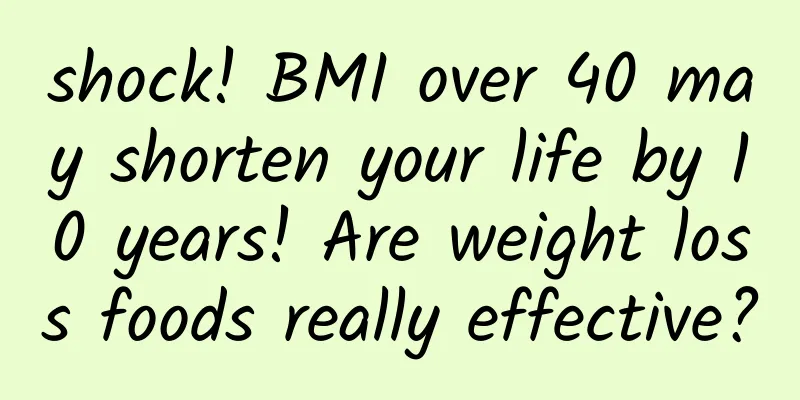Tips to protect your heart in summer: reduce sugar first! 21 superfoods you must eat

|
The temperature has been hitting record highs recently, and everyone loves to sip ice cream, drink sweetened cold drinks, and even eat desserts in an air-conditioned room, just to cool down and soothe their depressed mood, and unknowingly consume too much sugar. Did you know? A 700cc cup of commercially available sweetened beverage contains 70 grams of refined sugar. If you drink more than 2 cups a day, it will far exceed the daily intake. Nutritionists remind us that foreign studies have found that "eating sugar will make you sad". Why is that? Eating too much refined sugar can lead to obesity, cardiovascular disease, and diabetes Nutritionist You Weiming said that many processed foods on the market contain excessive amounts of refined sugar, causing people to become addicted to sugar without realizing it. They become anxious and uneasy when they don't eat sugar for a while, which leads to long-term and excessive intake of refined sugar, which not only causes excessive calories but also causes complications of the body, such as obesity, cardiovascular disease, and diabetes. The daily intake of refined sugar should be less than 10% of total calories. For a 70 kg male, the daily intake of refined sugar should be less than 50 grams. However, a 700cc cup of sweetened beverage contains 70 grams of refined sugar. If you drink 2 cups a day, plus desserts, cakes, biscuits, and ice cream, the daily intake of refined sugar may exceed 200 grams. To protect your heart in summer, you should reduce sugar intake first Eating too much refined sugar can hurt your heart! The latest study published in the Journal of the American Medical Association pointed out that people who consume too much refined sugar are more likely to have increased blood fat and increase the risk of heart disease, diabetes, and obesity. According to statistics from the World Health Organization, cardiovascular disease is the world's number one killer. One in six people in Taiwan dies from cardiovascular disease. Nutritionist You Weiming reminds us that processed foods contain a lot of refined sugars. Excessive intake of these refined sugars results in too many calories that the body cannot fully consume and eventually forms fat and causes obesity. The fatter the body, the higher the blood lipids, the greater the burden on the heart, and the more susceptible one is to cardiovascular disease, including myocardial infarction, stroke and paralysis. Therefore, "to protect your heart, you have to reduce sugar," so start by reducing sugar in your daily diet. Are there any alternatives to excessive sugar intake? Nutritionist You Weiming said that common sugars on the market include: fructose, white sugar, brown sugar, black sugar, maple syrup, and honey. These are refined sugars that we usually use in beverages and processed foods. They are sweet and easily absorbed by the human body to produce calories. Because they are not easy to produce a sense of fullness and are easy to get addicted to, they are often consumed in excess, causing obesity and cardiovascular disease. Common sugars on the market include: fructose, white sugar, brown sugar, black sugar, maple syrup, and honey. These are refined sugars that we usually use in beverages and processed foods. Nutritionists teach you 2 tips to avoid excessive intake of refined sugar There was a foreign report that a 70-year-old supermodel does not touch sugar and only eats xylitol to maintain her slim figure. It turns out that there are many types of sugar, including: monosaccharides, disaccharides, polysaccharides, oligosaccharides, and sugar substitutes. Among them, the sugar substitute is xylitol, which has a sweet taste but low calories and is often used in chewing gum products. However, most of the refined sugars commonly found on the market are monosaccharides and disaccharides. If people want to stay away from excessive intake of refined sugars, nutritionist You Weiming recommends the following 2 tips: Tip 1: Avoid sugary environments We should not keep any biscuits or snacks around us, and we should also carry a bottle of water with us. When we want to eat sweets, we can just drink a sip, which will greatly reduce our desire for sweets. Tip 2: Replace sugary drinks with freshly squeezed sugar-free mixed fruit juice For people who cannot give up sugary drinks, sugar-free mixed fruit juice is a more suitable drink that is also sweet and cold. Different fruits in different seasons can provide more healthy nutrients and dietary fiber. Trans fats are also bad for your heart and increase your risk of heart disease In addition to excessive intake of refined sugar, which can hurt your "heart", excessive saturated fat and trans fat can also hurt your "heart". According to the American Heart Association, daily saturated fat intake should not exceed 10% of total daily calories, and trans fat should not exceed 1% of total daily calories. Excessive intake of saturated fat and trans fat will increase the total amount of bad cholesterol in the blood and increase the risk of stroke and heart disease. Especially for people who often eat fast processed meat, fried food, baked products using partially hydrogenated oils, and refined biscuits, it is very easy to consume excessive saturated fat and trans fat, which is an invisible killer that causes blood fat and bad cholesterol (low-density lipoprotein cholesterol LDL-C) to soar, and at the same time brings great harm to the heart. How to eat to protect your heart? Taiwan is a tropical island country with hundreds of fresh ingredients available every day. If people want to protect their hearts and avoid cardiovascular diseases, they should choose high-quality local ingredients such as fruits and vegetables that are high in "phytochemicals, antioxidants, and dietary fiber". These ingredients can remove excess fat from the body, promote blood vessel elasticity, and delay aging to make the heart strong and powerful. 21 heart-protecting ingredients to eat every day Nutritionist You Weiming provides 21 kinds of heart-protecting ingredients and recommends that people can replace them every day, including: cabbage, sweet potato leaves, eggplant, red amaranth, spinach, onion, shiitake mushrooms, black and white fungus, carrots, brown rice, quinoa, pumpkin with skin, sweet potato with skin, beef tomatoes, grapes with skin, papaya, guava, mackerel, saury, trout, and tuna. |
<<: Love high-intensity exercise? Be careful or your heart will be broken!
>>: Flip the coconut oil! Do these two tricks correctly to control sugar and lose weight
Recommend
Menstrual cycle does this! Losing weight is not difficult
The menstrual cycle is unique to women. The fluct...
scanty menstruation, general weakness
scanty menstruation, general weakness Causes such...
What diseases cause vulvar itching? If these conditions occur, you should seek medical attention immediately.
Vulvar itching is generally a symptom of vulvar l...
Can’t get rid of the fat in your belly? It turns out the problem is hormones...
Do you feel that you will gain weight even by dri...
Can threatened abortion be cured?
Many pregnant women are terrified when they hear ...
What are the dangers of physiological ovarian cysts?
What are the dangers of physiological ovarian cys...
What are the symptoms of incomplete painless abortion? There are 4 symptoms of incomplete painless abortion
Abortion is a very harmful operation to women. No...
What are the treatment methods for uterine fibroids? People with high risk of uterine fibroids
In recent years, the incidence of uterine fibroid...
What diseases should you be alert to if your menstruation suddenly becomes less frequent at the age of 40?
If menstruation suddenly decreases after the age ...
What are the diagnostic criteria for vaginitis?
What are the diagnostic criteria for vaginitis? W...
Causes and treatment of irregular menstruation
Irregular menstruation is a common problem for wo...
What is the treatment for uterine fibroids?
Uterine fibroids are the most common benign tumor...
How to diagnose female pelvic peritonitis
What tests do regular hospitals do when diagnosin...
Can I wash my private parts after a miscarriage? What should I pay attention to after a miscarriage?
In modern society, unmarried cohabitation is no l...
What will happen if a woman has three abortions? There are 6 major dangers
If a woman has too many abortions, it is easy to ...









